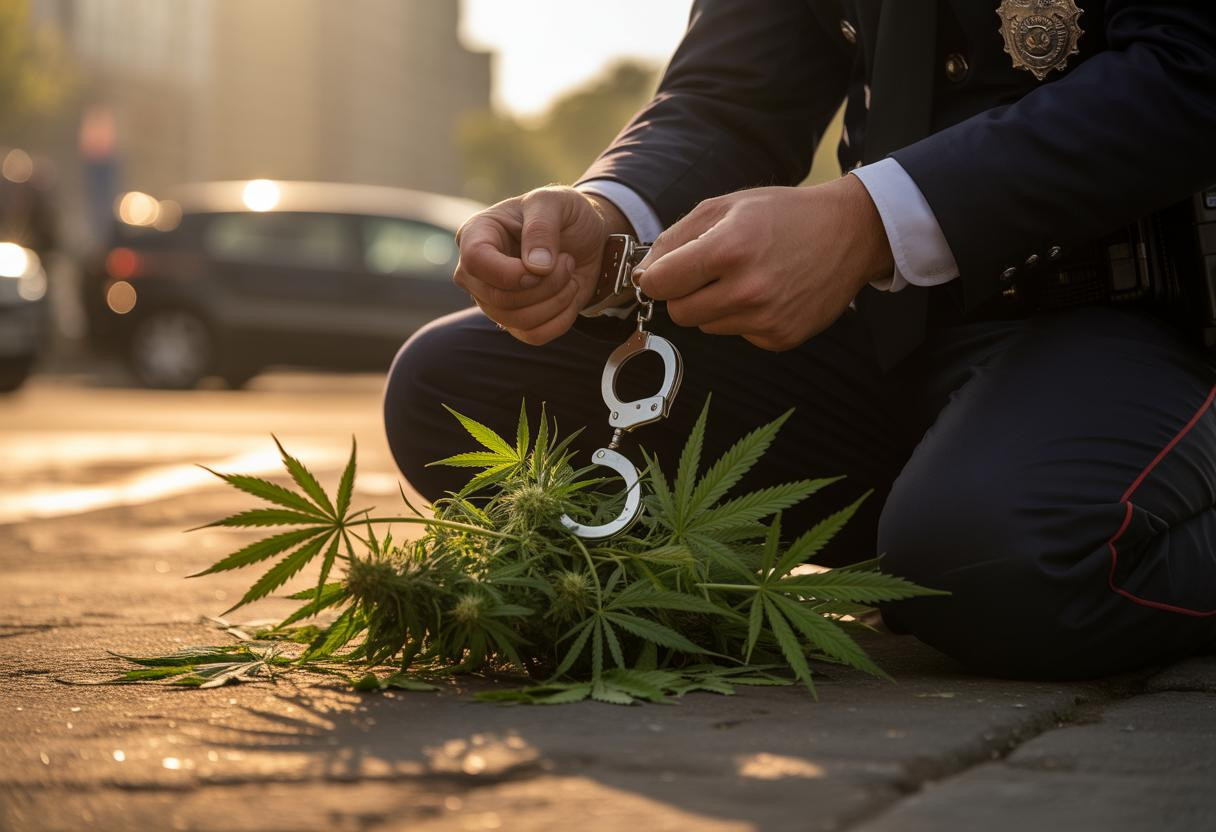London’s cannabis landscape is experiencing unprecedented shifts, with new policies potentially transforming how the city approaches drug enforcement and social equity. Recent developments suggest a dramatic departure from traditional approaches, with implications that could reshape everything from policing strategies to economic opportunities for residents.
Understanding London’s evolving cannabis policy framework
The London Drugs Commission, established by Mayor Sadiq Khan in 2022, represents a bold departure from decades of punitive drug policy. Their comprehensive 42-point recommendation framework focuses on decriminalizing personal possession while maintaining strict controls on commercial distribution.
Current UK law classifies cannabis as a Class B substance, carrying penalties of up to five years imprisonment for possession. However, the commission’s analysis reveals stark racial disparities in enforcement, with Black and Asian communities facing disproportionate targeting despite similar usage rates across demographics.
The economic implications are staggering. A 2016 parliamentary study estimated that full legalization could generate £500 million to £1 billion annually in tax revenue, while simultaneously reducing policing and court costs by millions.
Three game-changing discoveries reshaping cannabis policy
Police search reforms eliminate discriminatory practices
The commission’s most revolutionary recommendation prohibits using cannabis odor as justification for stop-and-search procedures. This single change could reduce police stops by an estimated 30%, addressing systemic inequalities that have plagued London’s communities for decades.
Data analysis shows that current enforcement disproportionately targets young Black men, creating criminal records that limit employment and housing opportunities. The new framework prioritizes violent drug offenses over personal possession cases, redirecting resources toward genuine public safety concerns.
Home cultivation restrictions balance freedom with control
Unlike full legalization models, London’s approach permits limited home cultivation only after evidence demonstrates it can effectively undermine illegal markets. This cautious strategy addresses concerns about unregulated production while providing legal alternatives for personal use.
International examples, including Thailand’s cannabis revolution and mental health impacts, demonstrate how rapid policy changes can create unexpected consequences. London’s measured approach aims to avoid similar pitfalls through careful monitoring and gradual implementation.
Social equity audits mandate ongoing accountability
The commission requires mandatory racial equity reviews of all cannabis-related enforcement activities. This unprecedented transparency measure ensures policy changes deliver promised benefits to marginalized communities rather than perpetuating existing inequalities.
Similar demographic analysis, like research examining educational demographics and behavioral patterns, reveals how policy changes affect different population segments in unexpected ways.
Practical implications for London residents
These policy shifts create immediate opportunities for community investment and economic development. Reduced criminal justice costs could fund education programs, mental health services, and job training initiatives in historically over-policed neighborhoods.
However, implementation faces significant challenges. The Centre for Social Justice warns that decriminalization could increase mental health issues and create a dual legal-illegal market, similar to problems observed in New York following policy changes.
Personal financial strategies become increasingly relevant as policy landscapes shift. Understanding how economic empowerment relates to broader social reforms, much like financial strategies that transform personal economics, helps individuals navigate changing regulatory environments.
Essential next steps for policy implementation
Education campaigns targeting youth perception
Comprehensive public education programs will address misconceptions about cannabis safety, particularly among younger demographics who may underestimate potential risks following decriminalization.
Healthcare integration and support services
NHS-funded addiction support services will expand to serve marginalized communities, ensuring that policy changes don’t inadvertently harm vulnerable populations already struggling with substance abuse issues.
Monitoring systems for long-term evaluation
Permanent independent health impact assessments will track mental health outcomes, crime statistics, and social equity metrics to ensure policy effectiveness and identify necessary adjustments.
What this means for London’s future
London’s cautious approach to cannabis reform represents a data-driven middle path between prohibition and full legalization. Success depends on continuous evaluation, community engagement, and willingness to adapt based on emerging evidence rather than ideological positions.
